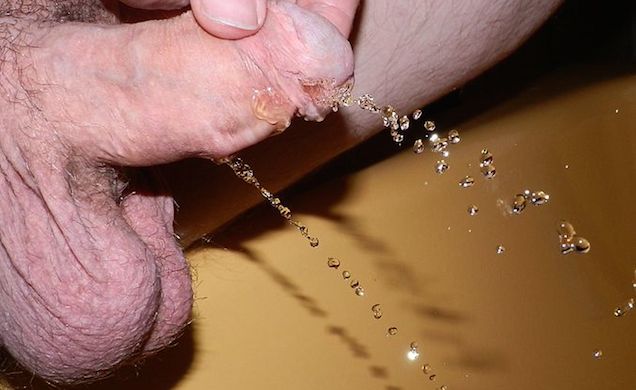Know Your Knob: all our penis health links
Hypospadias FAQs

What is it?
A congenital (i.e. present at birth) defect in which the opening of the urethra isn't at its normal place at the end of the penis.
What are the main symptoms?
- The opening of the urethra (the passage for urine and semen) is on the underside of the head of the penis (glans). Normally it is at the end of the penis, in the middle of the glans.
- The middle of the glans is just a blind dimple.
- In 65% of males with hypospadias, the opening is on the underside of the head of the penis, near where it joins the shaft.
- However, the opening can be anywhere along the underside of the shaft or even at the root of the penis near the testicles.
- The penis may bend at the end when erect.
- The foreskin is often abnormal. Part of it may be missing on the underside of the penis, so it looks like a hood.
- You may have difficulty directing your stream of urine.
What's the risk?
The usual estimate is that hypospadias affects about one in every 300 males but there is evidence that this is increasing. It usually runs in families. If a boy has hypospadias, his brothers have a one in twenty chance of also having it.
What causes it?
Hypospadias is present from birth but its cause is unknown. Hypospadias results from a failure of the penis to develop in the normal fashion. Normally the penis develops in two halves, which fuse along the underside (this accounts for the line that runs along the underside of the penis from the scrotum to the end of the foreskin) — this process is usually complete by the 15th week of gestation in the mother's womb. If this process stops during its progress then hypospadias is the result. One theory links this birth defect to the impact of certain pollutants on male foetuses while still in the womb.
Should I see a doctor?
Severe hypospadias, where the opening is near the testicles, should have been noticed at birth and corrected by an operation at the age of 12—18 months. But babies with slight hypospadias, where the opening is on head of the penis, do not always have an operation. However, even slight hypospadias can be irritating and embarrassing. You should see your GP who can refer you to a urological surgeon. This specialist will be able to give you more information and discuss your options, including surgery. Be aware that if your son is diagnosed with hypospadias at birth then a circumcision should not be performed, because the foreskin is often used to provide tissue for the hypospadias repair.
What are the main treatments?
Surgery can redirect the urethra and create a normal opening on the glans. The goal of surgery is to correct the cosmetic appearance of the penis and to allow urine to be passed normally.
How can I help myself?
If you have an uncorrected hypospadias there's little you can do besides discuss the problem with your doctor or others with the condition. If your child is affected, discuss the options with a paediatrician.
What's the outlook?
After surgery you should have no further problems. However, surgery is sometimes complicated by the formation of a fistula (a hole in the repair through which urine can leak).
We don't currently post comments online but are always keen to hear your feedback.
Date published
07/04/14
Date of last review
07/04/14
Date of next review
07/04/17
References
|
The Men’s Health Forum need your support It’s tough for men to ask for help but if you don’t ask when you need it, things generally only get worse. So we’re asking. In the UK, one man in five dies before the age of 65. If we had health policies and services that better reflected the needs of the whole population, it might not be like that. But it is. Policies and services and indeed men have been like this for a long time and they don’t change overnight just because we want them to. It’s true that the UK’s men don’t have it bad compared to some other groups. We’re not asking you to ‘feel sorry’ for men or put them first. We’re talking here about something more complicated, something that falls outside the traditional charity fund-raising model of ‘doing something for those less fortunate than ourselves’. That model raises money but it seldom changes much. We’re talking about changing the way we look at the world. There is nothing inevitable about premature male death. Services accessible to all, a population better informed. These would benefit everyone - rich and poor, young and old, male and female - and that’s what we’re campaigning for. We’re not asking you to look at images of pity, we’re just asking you to look around at the society you live in, at the men you know and at the families with sons, fathers and grandads missing. Here’s our fund-raising page - please chip in if you can. |



